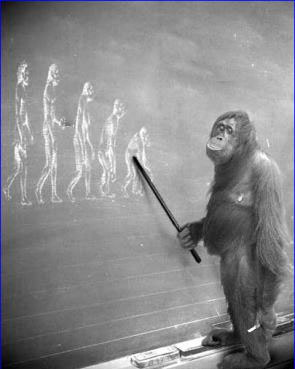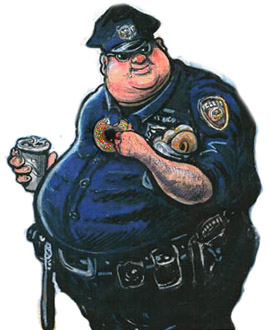 As I finished my B.A. in Philosophy at Biola, I decided on graduate school, but only applied to some southern California schools. I think because of our church involvement – we were in a fairly close knit small Vineyard church plant – I didn’t want to move very far away.
As I finished my B.A. in Philosophy at Biola, I decided on graduate school, but only applied to some southern California schools. I think because of our church involvement – we were in a fairly close knit small Vineyard church plant – I didn’t want to move very far away.
The only place I got into was the Claremont Graduate University, then called the Claremont Graduate School. At the time the core faculty there were: Al Louch, John Vickers, and Charles Young, and D.Z. Philips for half a year. I was accepted as an M.A. student, who could then be admitted to the Ph.D. if they thought I was up to it. (As it turned out, they did.) I was at CGU for two years (1993-5), and what I mainly did was plow through yet more early modern philosophy – Locke, Hume, Kant, and now Reid. For me, Thomas Reid was a revelation after reading Hume and Kant. I actually became very interested in the history of the so-called “Common Sense” school, and sought out and read material by thinkers as obscure as Buffier, Oswald, Beattie, and McCosh. But I found that Reid was the best philosopher among them. My way of thinking about epistemology is still solidly Reidian. Around that time Keith Lehrer came out with a book on Reid, but I can say that I was into Reid just a little before it was cool. 🙂 I bought a reprint of his complete works which is now thoroughly marked up.
I took two rigorous seminars (Locke, Hume) with Dr. Edwin McCann of USC, who had also been teaching some courses at CGU. His knowledge of early modern philosophy was truly impressive, and his empiricist and Wittgensteinian leanings were an interesting counterpoint to my own zeal for traditional metaphysics. This zeal met another critic in Dr. Jill Buroker, in a seminar wholly devoted to Kant’s Critique of Pure Reason. Despite her best efforts, I wasn’t converted to a Kantian view of epistemology and metaphysics.
D.Z. Phillips I avoided. I’d read real epistemology (Chisholm, Plantinga, etc.) and was always unimpressed with the later-Wittgenstein approach, especially to the epistemology of religion. Anyway, I heard it all repeatedly from some of my fellow grad students, who also said that every Phillips class was basically the same line over and over. I never could identify with the quasi-conversion stories some of them related about reading Wittgenstein’s On Certainty.
Another part-timer, who also did computer work for the college, was Dr. Joel Smith, who had been a student of the famous Wilfrid Sellars at Pittsburgh. I took an excellent History of the Philosophy of Science course with him, and he kindly encouraged my forays into the dense work of Sellars and others.
 Finally, one day I marched over to the adjoining Claremont McKenna campus ad introduced myself to Stephen T. Davis . (trinities podcast episode) He was as nice as could be, and I ended up taking his undergraduate Philosophy of Religion class. This, I gobbled down like a cop eating doughnuts. I sat on the front row, took copious notes, and tape recorded it all to review later. He spent a lot of time on arguments for God’s existence – probably some material that later made it into this book – and I have fond memories of wandering around the Claremont campuses enjoying the metaphysical high after that class, as I pondered whether, say the ontological argument was sound. He was very helpful in his advice, and very kind to me later when I was on the job market. And he was tough- but broad-minded, non-polemical, and properly appreciate of historical philosophy – a good model for me.
Finally, one day I marched over to the adjoining Claremont McKenna campus ad introduced myself to Stephen T. Davis . (trinities podcast episode) He was as nice as could be, and I ended up taking his undergraduate Philosophy of Religion class. This, I gobbled down like a cop eating doughnuts. I sat on the front row, took copious notes, and tape recorded it all to review later. He spent a lot of time on arguments for God’s existence – probably some material that later made it into this book – and I have fond memories of wandering around the Claremont campuses enjoying the metaphysical high after that class, as I pondered whether, say the ontological argument was sound. He was very helpful in his advice, and very kind to me later when I was on the job market. And he was tough- but broad-minded, non-polemical, and properly appreciate of historical philosophy – a good model for me.
What, at this time, did I think about the Trinity? Not much. By listening to some popular apologetics, I was at least a little familiar with the standard evangelical apologetics, I call it, Walter Martin way of arguing:
The Bible sez Jesus is God, the Father is God, and the Holy Spirit is God, and yet there is only one God. See: there is the Trinity!
(The cleanest version I’m aware of is this, by Dr. Francis Beckwith.) Briefly, I see this way of arguing as just confused and confusing. First, it isn’t clear at all that any creedal Trinity doctrine would follow. Second, it’s not clear that it is consistent. How could three different things each be numerically identical to one thing? It superficially follows a patristic mode of argument, but I don’t think it is the same as any of those ancient arguments. I suspect that Beckwith would not today maintain this way of arguing.
 I also remember some basic defensive points, to the effect of: Why would we be surprised if the God of the Universe turned out to by greater that we can comprehend, or to have many persons in him? As I related once before, I tried some of this out on my fellow grad student Ed Feser, and he was unimpressed. (He wasn’t Catholic at that point – he was a naturalistic atheist.) Feser (rightly) not being impressed by my lazy points, I noted to myself that I should think about this issue more some day. I didn’t forget that my Mighty Apologetic Onslaught had proved ineffective.
I also remember some basic defensive points, to the effect of: Why would we be surprised if the God of the Universe turned out to by greater that we can comprehend, or to have many persons in him? As I related once before, I tried some of this out on my fellow grad student Ed Feser, and he was unimpressed. (He wasn’t Catholic at that point – he was a naturalistic atheist.) Feser (rightly) not being impressed by my lazy points, I noted to myself that I should think about this issue more some day. I didn’t forget that my Mighty Apologetic Onslaught had proved ineffective.
Finally, I do remember privately speculating some about the subject, along the lines of modalism. See, the Holy Spirit would be God’s immanence – the Father his transcendence, and the Son his mercy. Thus, the Trinity would really be three attributes of God. See, I saved monotheism! Actually, I just added a theory to the modalist junk heap. But at least I didn’t air those thoughts in public. D’oh! Did I just write that?
Like many, I had read and been profoundly impressed with Alvin Plantinga‘s first two Warrant books. Then I found that my fellow student Dan Speak was applying to Notre Dame for his Ph.D.. Though I had been admitted to CGU’s Ph.D. program, I too caught the Plantinga fever, and also decided that I might as well apply to a bunch of other places too. My CGU profs totally supported me in this. As it turned out, neither Dan nor I got into Notre Dame, but thanks to my recommendations from CGU, my applications were a little more fruitful this time around.

Dale,
This “Part 4” reminded me of how important a particular professor I had in college became to me when he introduced us to “critical thinking” and the concept of “distantiation.” I remember the first couple of papers I wrote in his class were returned in my campus mail box all marked up in red ink where there were “unsubstantiated assumptions” and “non sequitur” conclusions. It was difficult at first, but now I look back and realize how important objectivity, evidence, and logic are to doing sound biblical exegesis.
Unlike you, I never had any interest in philosophy courses at all in school. I think that might have been on account of having some skepticism (from my Catholic upbringing) and not wanting to entertain “the opinions of men.” I think I felt safer focusing on what I understood to be “inspired” scripture and went on to focus much more on biblical translation, exegesis, and interpretation.
Comments are closed.